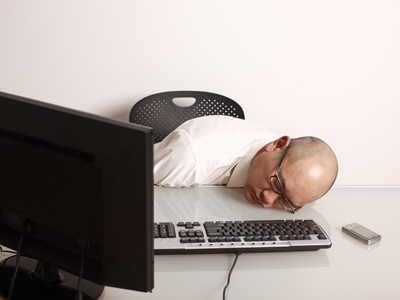
8 out of 10 Hong Kongers feel pressured to work on holidays
It's the highest rate in Asia Pacific.
Eight in 10, or 77 per cent of, employees in Hong Kong feel pressured to respond to work related calls and e-mails while on holiday, the highest rate in Asia Pacific.
According to a release from Randstad, based on its recently released Q2 Workmonitor survey, Hong Kong employees find it the most difficult to switch off. They were compared to employees in New Zealand (27 per cent), Australia (40 per cent), Japan (40 per cent), Singapore (49 per cent), Malaysia (60 per cent), India (63 per cent), and China (67 per cent).
Almost eight in 10 (75 per cent) said their employers expect them to be available outside of regular office hours. This is another concerning trend as compared to other regional counterparts including Japan (47 per cent), Australia (51 per cent), New Zealand (52 per cent) and Singapore (60 per cent).
Mr Peter Yu, Director of Randstad Hong Kong, said these figures show that employers in Hong Kong are behind the curve in promoting work-life balance in the workplace, which dampens their talent attraction and retention strategies.
Here's more from Randstad:
“Hong Kong is a hardworking city. However, the constantly evolving workforce is increasingly gravitating towards maintaining a good work-life balance.
“Particularly with an unemployment rate as low as 3.3 per cent, organisations in Hong Kong are pressed to provide more than just competitive salaries to attract and retain talent.
“Employers need to address the importance of work-life balance and take practical action to encourage employees to switch off outside of work. This includes not e-mailing their employees outside of work hours unless necessary, setting realistic project timelines, and closely communicating with the team to ensure employees are able to hand over their work to their colleagues when they go on holiday,” Mr Yu said.
Mr Yu also advised companies to be aware of the potential pitfalls of the ‘bring your own device’ (BYOD) strategy, where companies permit employees to bring personally owned mobile devices into the workplace.
“BYOD has been gaining popularity in Hong Kong in the past five years. Our research found that about half (44 per cent) of employers in Hong Kong have a BYOD policy in place.
“While encouraging employees to bring their own device will maximise mobility and connectivity, it may have adverse impacts on employee satisfaction if the BYOD policy is not managed properly.
“To maximise the benefits of BYOD, the management needs to steer clear of encouraging employees to overwork on their devices out of the office. Organisations also need to educate employees on the importance of switching off outside of work hours.
“Companies need to have a clear mindset that overworking does not result in productivity. To successfully manage a high-performing team, employers need to promote work-life balance. Ultimately, companies will benefit from a more productive workforce that is refreshed and satisfied,” Mr Yu concluded.
The Randstad Workmonitor survey also found that:
§ 62 per cent of employees believe their employer expects them to be available by phone and e-mail during holidays.
§ 60 per cent respond to work related calls and e-mails immediately outside regular office hours.
§ 74 per cent state their colleagues handle work related calls and e-mails outside regular office hours.
§ 58 per cent state their colleagues respond to work related calls and e-mails while on holiday.






















 Advertise
Advertise







